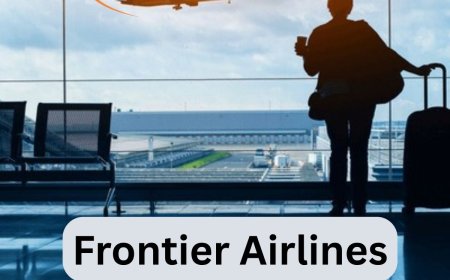A Complete Travel Guide for Ghanaians Planning to Work and Live in Dubai
Dubai is one of the most exciting cities in the world. Known for its modern architecture, luxury shopping, and booming job market, it attracts thousands of international workers every yearincluding many from Ghana. Whether youre looking for a fresh start or better career opportunities, Dubai is a great place to build your future.
If you're planning to move from Ghana to Dubai for employment, there are several things you need to know before starting your journey. From understanding visa costs to tracking your application, this article will guide you through the most important steps of the process.
Understanding Dubai Working Visa Price in Ghana
Before making travel arrangements, one of the first things to check is the Dubai working visa price in Ghana. This is a crucial step in your planning process as it helps you set a realistic budget.
A Dubai work visa for Ghanaians typically ranges between GHS 3,000 to GHS 6,500, which is roughly $250 to $550 USD, depending on several factors. These include the type of job, the duration of the employment contract, and the processing service you choose.
The work visa fees usually cover:
-
UAE Ministry of Labor approval
-
Medical examination
-
Emirates ID processing
-
Residence visa stamping
-
Visa typing and application service fees
Some employers in Dubai may sponsor the visa and pay for all related costs. In such cases, you won't need to pay for the visa yourself. However, if you're going through an agency or applying independently, you will be responsible for these expenses.
Its important to work with a registered and reliable travel or recruitment agency in Ghana. Always confirm what's included in the quoted fee to avoid hidden charges or scams.
How to Check Dubai Visa Status After Application
Once your visa application is submitted, the next step is to track its progress. Thanks to digital systems, you can now check Dubai visa status online using simple details like your passport number or application ID.
Heres how to do it:
-
Visit the UAE governments official visa tracking portal or the website of the company/agency handling your visa.
-
Enter your visa reference number or application number.
-
Enter your passport number.
-
Click "Submit" to view the status of your application.
Common status updates include Under Processing, Approved, Rejected, or Issued. If your visa is approved, you should receive a soft copy by email, which you need to print and carry when traveling.
This tracking service is especially useful if you're applying through a third-party agency. It keeps you informed and reduces the chances of delays or misunderstandings.
Job Opportunities in Dubai for Ghanaians
Dubai has a strong demand for workers in sectors such as construction, hospitality, retail, security, cleaning services, and logistics. Many Ghanaians have successfully found jobs as hotel staff, cleaners, security guards, drivers, salespersons, and customer service agents.
To secure a job in Dubai, you can:
-
Apply online through job portals such as Indeed, Bayt, and GulfTalent.
-
Contact licensed recruitment agencies in Ghana.
-
Network with people already working in Dubai who can refer you.
Having a valid passport, a basic CV, and some professional experience can increase your chances of getting hired. Some employers also look for candidates who can speak basic English and have a positive attitude.
What Happens After Visa Approval?
Once your Dubai work visa is approved, youll receive an entry permit valid for 60 days. This allows you to enter the UAE and complete the rest of the formalities. These include:
-
Medical fitness test (required for all foreign workers)
-
Fingerprinting and biometrics
-
Emirates ID registration
-
Visa stamping on your passport
Your employer or agent will guide you through these steps. After completing the process, you'll receive a UAE residence visa that allows you to work and live in Dubai legally.
Cost of Living in Dubai
Dubai is more affordable than many people expect, especially when you live wisely. Heres a quick breakdown of average monthly costs:
-
Shared accommodation: AED 8001500
-
Food and groceries: AED 5001000
-
Transportation (metro/bus): AED 250400
-
Mobile/internet: AED 150300
Many employers provide free accommodation, meals, or transportation, which helps you save more of your earnings. With proper budgeting, you can live comfortably and even send money back home.
Things to Know Before Traveling
Here are some important tips to help you prepare for your trip:
-
Carry all original documents: Passport, visa, job offer letter, and travel insurance.
-
Dress modestly: Especially when arriving in public spaces.
-
Avoid bringing banned items: Drugs, pornography, pork, and certain medications are not allowed in the UAE.
-
Exchange some local currency: Its useful for transportation or small purchases upon arrival.
Its also helpful to learn a few basic Arabic phrases. While English is widely spoken, knowing simple greetings or questions in Arabic can be an advantage.
Adapting to Life in Dubai
Once you arrive and settle in, youll notice that Dubai is a fast-paced but welcoming city. With a large expat community, you'll find many fellow Ghanaians and other Africans working in various sectors. There are also churches, social clubs, and African food stores to help you feel at home.
Respecting the UAEs laws and customs is important. Avoid loud behavior, dress modestly, and follow public rules. Alcohol is allowed in licensed places, but public drunkenness is not tolerated. Always carry your Emirates ID and residence visa in case authorities ask for identification.
Sending Money Back to Ghana
One of the biggest benefits of working in Dubai is the ability to send money back home. There are many safe and affordable options available, including:
-
Money transfer services like Western Union or MoneyGram
-
Bank-to-bank international transfers
-
Exchange houses offering remittance services
Its recommended to compare exchange rates and fees before sending money to get the best value. Most workers send money monthly to support their families or save for future investments.









































